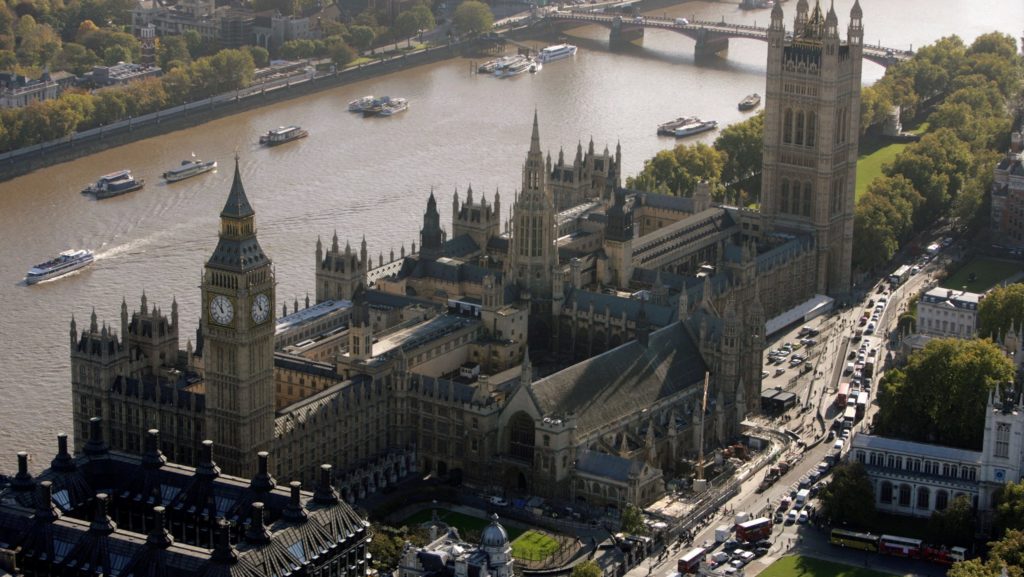Members of British Parliament have voted overwhelmingly in favor of decriminalizing abortion up to birth.
After two hours of debate in the House of Commons June 17, with a majority of 242 votes needed, MPs voted 379 to 137 in support of an amendment to the Crime and Policing Bill, which removes criminal liability from any woman who aborts her child for any reason up to and during birth.
After the vote, Archbishop John Sherrington of Liverpool, the lead bishop for life issues for the Catholic Bishops' Conference of England and Wales, said the bill now "effectively decriminalizes abortion in England and Wales."
He said: "We are deeply alarmed by this decision. Our alarm arises from our compassion for both mothers and unborn babies."
A "New Clause 1" of the bill "lifts any criminal liability for women performing their abortions for any reason, at any time, including up to and during birth," he said in a June 17 statement.
"This decision significantly reduces the protection of unborn lives and will result in grave harm for pregnant women," Archbishop Sherrington said.
"Women will be even more vulnerable to manipulation, coerced and forced abortions," he continued. "This legal change will also discourage medical consultation and make the use of abortion pills for dangerous late-term, at-home abortions more likely.
"Abortion is often chosen because of the personal challenges that a woman faces, as well as the lack of proper suitable guidance and support," he added. "The enacting of New Clause 1 will result in women being more alone, vulnerable, and isolated."
The archbishop said that the Catholic Church would refuse to "lose hope" and would continue to work tirelessly "to protect the dignity of every life."
Archbishop Sherrington said: "We will not abandon pregnant women and their unborn children in their most vulnerable moment. I thank all those within and outside the Church who share this commitment and continue to serve parents in need and their babies."
At present, abortion is technically illegal under the Victorian-era Offences Against the Persons Act 1861 unless the criteria are met under the 1967 Abortion Act.
Such conditions include an upper time limit of 24 weeks, except when the mother's life is in grave danger or the unborn child is disabled. Two doctors must give their consent for each abortion to go ahead on the grounds that the continuation of the pregnancy poses a risk to the mother's mental or physical health. It is also possible to obtain pills to induce an abortion at home in the first 10 weeks of pregnancy.
In practice, however, the law is interpreted extremely liberally, with abortions in England and Wales reaching a record high of over 250,000 in the last years.
The Crime and Policing Bill was introduced principally to combat violence, especially against women, and to halt the scourge of knife crime in particular.
The amendment was introduced by Tonia Antoniazzi, the Labour MP for Gower.
Antoniazzi said her amendment was necessary because of the rising numbers of cases of women prosecuted for using abortion pills illegally to kill their unborn children beyond the 24-week upper limit.
During the debate, she told MPs that the country's abortion law was "outdated" and that the prosecution of women for procuring late-term abortions was "not justice" but "cruelty, and it has got to end."
However between 1861 and 2022, only three women in Britain were convicted of having illegal abortions, according to the Royal College of Obstetricians and Gynaecologists. Since then, six women have been charged by police, the group said, as reported by Reuters. One woman has been jailed.
Conservative MP Rebecca Paul warned that if passed, the new law might allow abortions up to full term without legal consequence -- something she described as deeply troubling.
"If this becomes law, fully developed babies up to term could be aborted by a woman with no consequences."
The bill now heads to the House of Lords for further debate. If unopposed, abortion would be effectively removed from the criminal code for the first time since 1861.
If the abortion amendment to the bill is unopposed, it will pass into law and the Offences Against the Persons Act will be amended to remove abortion as a crime.
Catherine Robinson of Right to Life, a U.K. pro-life group, accused Antoniazzi of hijacking a government bill to pursue a radical abortion agenda.
"There has been no consultation with the public on this seismic law change," she said in a June 17 statement sent by email to OSV News.
"We will be fighting this amendment at every stage in the Lords," she said.
She added: "This law change would likely lead to the lives of many more women being endangered because of the risks involved with self-administered late-term abortions and also tragically lead to an increased number of viable babies' lives being ended well beyond the 24-week abortion time limit and beyond the point at which they would be able to survive outside the womb."

